Share
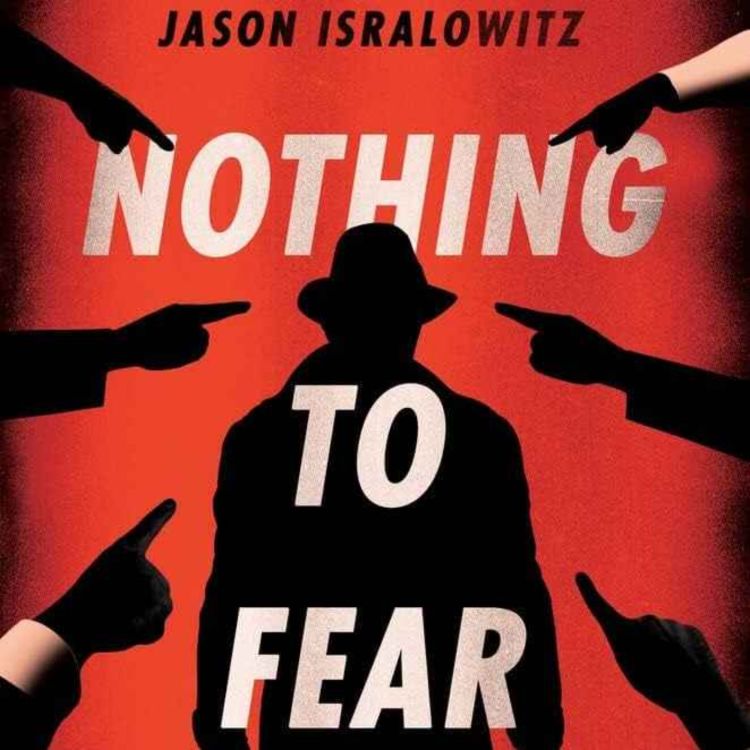
Writers on Film
Jason Isralowitz and Hitchcock's Wrong Man
Nothing To Fear: Alfred Hitchcock And The Wrong Men
To buy click on this link.
Alfred Hitchcock is not often associated with a social justice movement. But in 1956, the world’s most famous director focused his lens on an issue that cuts to the heart of our criminal justice system: the risk of wrongful conviction. The result was The Wrong Man, a wrenching and largely overlooked drama based on the real-life arrest of Queens musician Christopher “Manny” Balestrero for two robberies he did not commit.
With documentary-like authenticity, Hitchcock and his team meticulously re-created Manny’s journey through the corridors of justice and the devastating effect of the arrest on his wife, Rose. In so doing, the director cast a damning light on New York’s history of mistaken identity cases. The Balestreros fell victim to the same rush to judgment and suggestive eyewitness identification procedures that had doomed innocent defendants in earlier cases. Their ordeal is part of a larger story of the state’s failure to reckon with its role in other wrongful prosecutions in the first half of the twentieth century.
Attorney Jason Isralowitz tells this story in a revelatory book that situates both the Balestrero case and its cinematic counterpart in their historical context. Drawing from archival records, Isralowitz delivers a gripping account of Manny’s trial and new insights into an errant prosecution. He then examines how Hitchcock fused striking visual motifs with social realism to create a timeless work of art. The film bears witness to issues that animate the contemporary innocence movement, including the unreliability of eyewitness testimony, the need for police lineup reforms, and the dangers of investigative “tunnel vision.” Given the hundreds of exonerations of the wrongfully convicted in recent years, The Wrong Man remains as timely as ever.
“Nothing to Fear is a fascinating history, not only for fans of Hitchcock but for anyone interested in how our justice system works (and sometimes doesn't). The story of ‘the wrong man' continues to resonate well into the twenty-first century, and will make you question your assumptions about innocence and guilt.” Dawn Raffel, author of The Strange Case of Dr. Couney, named by NPR as one of 2018’s Great Reads and winner of a 2019 Christopher Award.
“Thanks to Jason Isralowitz for finally writing a book about Hitchcock’s most under-appreciated movie. Isralowitz brilliantly contextualizes the movie and the true-life story of Manny Balestrero, preceded by an eye-opening prologue detailing the justice system’s long history of indicting ‘the wrong man’ (and, in a few cases, ‘the wrong woman’). A must for both cinephiles and true crime buffs.” Bruce Goldstein, Repertory Artistic Director, Film Forum, New York.
ISBN: 9781949024425
More episodes
View all episodes

174. Comedian and actor Chris Calogero on comedy, horror and movie clichés
01:06:25||Season 1, Ep. 174Chris Calogero became a viral sensation with his videos skewering movie clichés, so I had to get him on the podcast to talk police lieutenants and filthy coroners. His new comedy album HUSKY BOY can be ordered here and all the information you want is available from his site, here.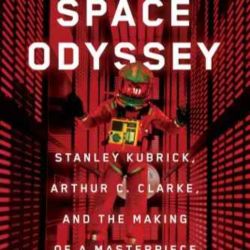
35. From the Archives: Michael Benson on Stanley Kubrick's 2001 A Space Odyssey
01:21:42||Season 1, Ep. 35John Bleasdale talks to Michael Benson on his book Space Odyssey: Stanley Kubrick, Arthur C Clarke and the Making of a Masterpiece.Buy the Book Here.The definitive story of the making of 2001: A Space Odyssey , acclaimed today as one of the greatest films ever made, and of director Stanley Kubrick and writer Arthur C. Clarke- "a tremendous explication of a tremendous film....Breathtaking" ( The Washington Post ).Fifty years ago a strikingly original film had its premiere. Still acclaimed as one of the most remarkable and important motion pictures ever made, 2001: A Space Odyssey depicted the first contacts between humanity and extraterrestrial intelligence. The movie was the product of a singular collaboration between Stanley Kubrick and science fiction visionary Arthur C. Clarke. Fresh off the success of his cold war satire Dr. Strangelove, Kubrick wanted to make the first truly first-rate science fiction film. Drawing from Clarke's ideas and with one of the author's short stories as the initial inspiration, their bold vision benefited from pioneering special effects that still look extraordinary today, even in an age of computer-generated images.In Space Odyssey , author, artist, and award-winning filmmaker Michael Benson "delivers expert inside stuff" ( San Francisco Chronicle ) from his extensive research of Kubrick's and Clarke's archives. He has had the cooperation of Kubrick's widow, Christiane, and interviewed most of the key people still alive who worked on the film. Drawing also from other previously unpublished interviews, Space Odyssey provides a 360-degree view of the film from its genesis to its legacy, including many previously untold stories. And it features dozens of photos from the making of the film, most never previously published."At last! The dense, intense, detailed, and authoritative saga of the making of the greatest motion picture I've ever seen ... Michael Benson has done the Cosmos a great service" (Academy Award-winning actor Tom Hanks).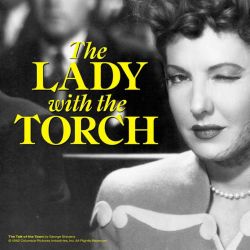
173. 100 Years of Columbia Pictures: from Locarno
52:50||Season 1, Ep. 173Ehsan Khoshbakht, curator of the Retrospective: “How to tell the story of a leading Hollywood studio while both teasing out the nuances and stressing the significance of canonical titles worthy of continued celebration? This has been the main challenge for our 40-title retrospective mapping Columbia Pictures’ glorious rise from Poverty Row to major force in Hollywood. ‘Lady with the Torch’ is an unofficial history of Columbia Pictures that celebrates big names, Oscar winners, and era-defining films but pays equal attention to the B-unit and yet to be discovered masters. Think the fast-talking career women of screwball comedies or think existentialist cowboys, prophetic anti-fascist quickies or unsettling ‘problem pictures’. Sony's generosity means we will bring to Locarno new restorations of films by John Ford and Phil Karlson, among many other gems. Once upon a time there was a brilliant exchange between art and commerce, between the system and the artist, and this Retrospective will celebrate that.”Visit the site here.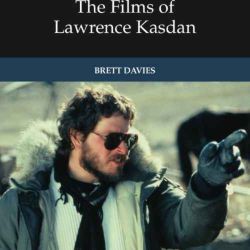
172. Brett Davies talks Lawrence Kasdan
01:02:50||Season 1, Ep. 172Lawrence Kasdan has created some of the most influential films in Hollywood history. He is the screenwriter of such beloved blockbusters as The Empire Strikes Back (1980), Raiders of the Lost Ark (1981), The Bodyguard (1992), and The Force Awakens (2015). Simultaneously, he has gained critical acclaim as the director of pictures that dissect contemporary American society: Body Heat (1981), The Big Chill (1983), The Accidental Tourist (1988), and Grand Canyon (1991).Brett Davies is Associate Professor of English at Meiji University, Tokyo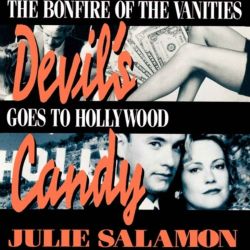
29. Julie Salamon and the Devil's Candy
01:15:21||Season 1, Ep. 29John Bleasdale talks to Julie Salamon the author of The Devil's Candy, The Bonfire of the Vanities Goes to Hollywood. The book is available here. The book was also the basis for the podcast series The Plot Thickens which you can listen to here.“So much better, so much more fun, than the movie it is about that one must be thankful to the filmmakers for producing such a spectacle, if only so that this book could be written.”—Vogue When film director Brian De Palma invited author Julie Salamon to follow him on the set of The Bonfire of the Vanities, he had no idea that the fifty-million-dollar movie would become one of Hollywood’s biggest flops. The Devil’s Candy is the juicy, bestselling exposé that sent Hollywood honchos running for cover. Who was responsible for the last-minute casting change that cost four million dollars? Who knew that Melanie Griffith would show up halfway through the filming with a new set of breasts? Settle down in your front-row seat for a story that has more drama, hilarity, greed, folly, and ego than the movie that eventually ended up on the screen. Expertly reported and elegantly written, The Devil’s Candy is irresistible fun, a classic insider’s look at the movie business.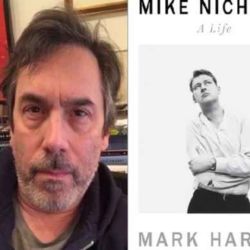
12. Mark Harris on Mike Nichols and others
58:26||Season 1, Ep. 12John Bleasdale talks to author Mark Harris about his books Pictures from the Revolution and his recent biography of Mike NIchols.Mark's recommended book is Jason Bailey's Fun City Cinema, available here.Here's the blurb to Mark's most recent book:An instant New York Times Bestseller!A magnificent biography of one of the most protean creative forces in American entertainment history, a life of dazzling highs and vertiginous plunges--some of the worst largely unknown until now--by the acclaimed author of Pictures at a Revolution and Five Came BackMike Nichols burst onto the scene as a wunderkind: while still in his twenties, he was half of a hit improv duo with Elaine May that was the talk of the country. Next he directed four consecutive hit plays, won back-to-back Tonys, ushered in a new era of Hollywood moviemaking with Who's Afraid of Virginia Woolf?, and followed it with The Graduate, which won him an Oscar and became the third-highest-grossing movie ever. At thirty-five, he lived in a three-story Central Park West penthouse, drove a Rolls-Royce, collected Arabian horses, and counted Jacqueline Kennedy, Elizabeth Taylor, Leonard Bernstein, and Richard Avedon as friends.Where he arrived is even more astonishing given where he had begun: born Igor Peschkowsky to a Jewish couple in Berlin in 1931, he was sent along with his younger brother to America on a ship in 1939. The young immigrant boy caught very few breaks. He was bullied and ostracized--an allergic reaction had rendered him permanently hairless--and his father died when he was just twelve, leaving his mother alone and overwhelmed.The gulf between these two sets of facts explains a great deal about Nichols's transformation from lonely outsider to the center of more than one cultural universe--the acute powers of observation that first made him famous; the nourishment he drew from his creative partnerships, most enduringly with May; his unquenchable drive; his hunger for security and status; and the depressions and self-medications that brought him to terrible lows. It would take decades for him to come to grips with his demons. In an incomparable portrait that follows Nichols from Berlin to New York to Chicago to Hollywood, Mark Harris explores, with brilliantly vivid detail and insight, the life, work, struggle, and passion of an artist and man in constant motion. Among the 250 people Harris interviewed: Elaine May, Meryl Streep, Stephen Sondheim, Robert Redford, Glenn Close, Tom Hanks, Candice Bergen, Emma Thompson, Annette Bening, Natalie Portman, Julia Roberts, Lorne Michaels, and Gloria Steinem.Mark Harris gives an intimate and evenhanded accounting of success and failure alike; the portrait is not always flattering, but its ultimate impact is to present the full story of one of the most richly interesting, complicated, and consequential figures the worlds of theater and motion pictures have ever seen. It is a triumph of the biographer's art.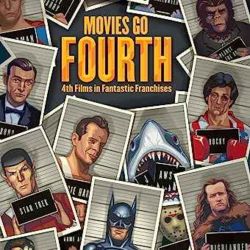
171. Movies Go Fourth
59:42||Season 1, Ep. 171Movies Go Fourth is a celebration of the fourth movies in the most popular film franchises of all time. It offers behind-the-scenes stories of fourth films from such beloved series as Star Wars, Star Trek, and James Bond. It also explores infamous fourth films, including Jaws: The Revenge, Superman IV: The Quest for Peace, and Batman & Robin. This riveting book reveals the inside scoop on some of the biggest films in horror (Halloween, Nightmare on Elm Street), sci-fi (Highlander, Terminator, Planet of the Apes), action (James Bond, Die Hard, Rambo) and comedy (Police Academy, Home Alone). Author Mark Edlitz also examines notable unmade fourth films, such as Francis Ford Coppola's The Godfather: Part IV and Sam Raimi's Spider-Man 4.Film trilogies used to signify a movie's success. Today, studios prefer to make never-ending stories. So what happens when the trilogy is over and the filmmakers or the studios want to make a fourth movie? Do they stick with the original story or create invent new characters who chart a new story? How do they honor what came first while inventing something new? And what happens when the artist and the studio come into conflict? This book answers those questions and many others.Through exclusive and revealing interviews, Movies Go Fourth delves deeply into making some of the most popular film franchises of all time. Based on candid interviews from the filmmakers themselves, Movies Go Fourth reveals what happens when art and commerce collide.
170. Karlovy Vary International Film Festival 2024
59:30||Season 1, Ep. 170I talk to esteemed film critic and friend Rafa Sales Ross (find her work here), Noaz Deshe about his new film Xoftex and Christos Nikou about Apples, Apple and Fingernails.The Karlovy Vary International Film Festival is the largest film festival in the Czech Republic and the most prestigious such festival in Central and Eastern Europe. It is one of the oldest A-list film festivals (i.e., non-specialized festivals with a competition for feature-length fiction films), a category it shares with the festivals in Cannes, Berlin, Venice, Locarno, San Sebastian, Montreal, Shanghai, and Tokyo. Among filmmakers, buyers, distributors, sales agents, and journalists, KVIFF is considered the most important event in all of Central and Eastern Europe.Every year, the festival presents some 200 films from around the world, and regularly hosts famous and important filmmakers. The Karlovy Vary festival is intended for both film professionals and the general public, and offers visitors a carefully designed programme, excellent facilities and a broad range of other services.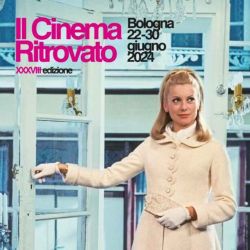
169. Bologna: Il Cinema Ritrovato Festival
30:44||Season 1, Ep. 169I speak with the the co-director of the Bologna Cinema Ritrovato festival Ehsan KhoshBakht and film restoration expert MIchael Dawson whose restorations of Stanley Kubrick's shorts showed at the festival.